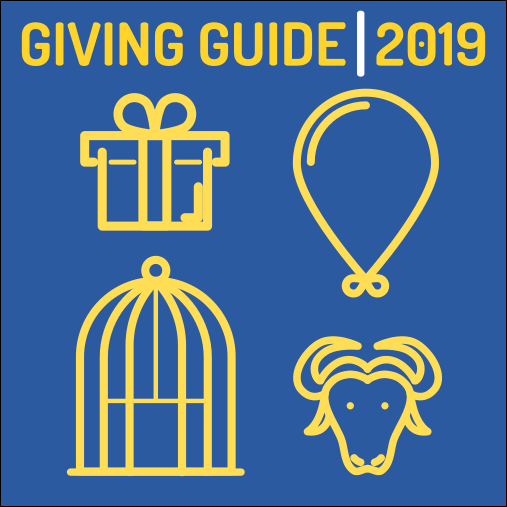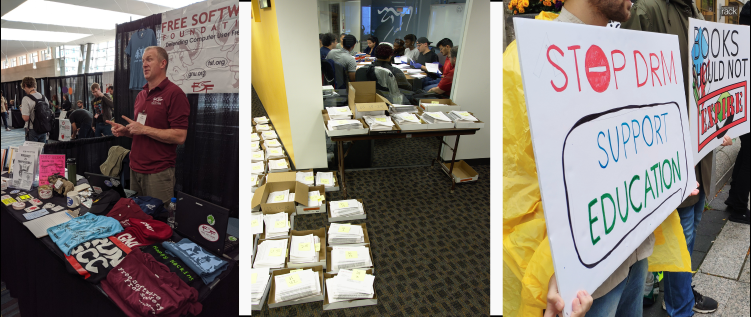Ethical Tech Giving Guide: Freedom is the gift that keeps on giving
mercredi 27 novembre 2019 à 17:40For many of us, the holiday season is about bringing our loved ones together to celebrate. Most of the time, this includes giving them a neatly wrapped present or two. We go through the buying process carefully, using a friend or family member's likes and dislikes to sift through the Web and find the right item. But when choosing a tech gift, we need to be careful to give them something that doesn't harm them instead.
This is why we at the Free Software Foundation (FSF) publish our Ethical Tech Giving Guide each year, as a way to help free software supporters choose gifts that won't burden the people they care about with proprietary software or venomous Digital Restrictions Management (DRM). Devices may come and go, but introducing another person to software freedom is the start of a lifelong journey.
We create resources like the Ethical Tech Giving Guide to let others know that true freedom is dependent on software freedom. Our annual fundraiser is happening right now, and we're looking to bring 600 new associate members into the fold before December 31st. Our membership program is the heart of our work here at the FSF, and we couldn't do it without community support. If you're not already one of our valued members, will you take the next step in your commitment to software freedom and become an associate member today? Beginning at the $120 level of contribution, new and renewing members can choose from a great array of fundraiser premiums, including FSF and GNU patches, an FSF-emblazoned thermos, an FSF backpack, or all at once! We also encourage you to share this Guide, and our message, with friends.
The Giving Guide is a tool that will help you avoid the temptation to get your loved ones the latest offerings from companies like Apple or Amazon, whose business model revolves around subjecting people to proprietary malware and surveillance. Digital personal assistants and other devices running proprietary software did not become the norm overnight. Rather, they achieved their popularity through convincing one person at a time that they were useful. Tech corporations have billions of marketing dollars to convince people to use their products -- but our movement has more and more people every day, who can make daily choices to refuse them, and deprive them of power.
Computing in the free world received a major gift of its own this year with our Respects Your Freedom (RYF) certification of the Talos II and Talos II Lite, mainboards that are based on the promising POWER9 CPU architecture. The Talos mainboards and the POWER9 architecture are off to a great start where user freedoms are concerned, and may in time replace the more restrictive X86 motherboards that are popular today. It's a great start for the next phase of the RYF program, something we've taken into consideration when making major improvements to its Web site.
The Purism Librem 5 cell phone is another exciting addition to the Giving Guide this year: we're giving it a tentative recommendation because the company has publicly committed to doing the right things for prioritizing user freedom and privacy. We also have evaluated and endorsed the operating system that the Librem 5 will run, the fully free PureOS, and the phone is designed for maximum privacy, security, and user freedom.
We are still strong in our resistance, and Apple, Microsoft, Netflix, and company still haven't won the fight despite their efforts. The free software movement continues on, and the FSF is still here to fight for the freedom of computer users around the globe.
Share the Guide with your friends and family, and use it to give a few gifts yourself! Just like the free software movement, the FSF community is spread around the globe. Earlier this month we sent over 12,000 letters to supporters far and wide, and take our own holiday joy in seeing how far the fight for a free society has come since its humble beginnings. Although it's winter here in Boston, your sustained support, feedback, and positivity helps us keep the free software fires burning.

